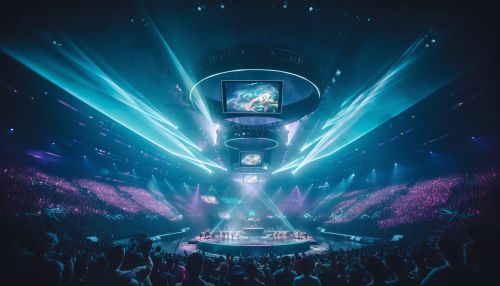Gaming
Overview
Gaming, in its broadest sense, refers to the engagement in activities that are undertaken for amusement, fun, or competition, often structured by a set of rules or guidelines. This can encompass a wide range of activities, from traditional board games and card games to digital video games and esports. The act of gaming has been a part of human culture for thousands of years, with some of the earliest known games dating back to ancient civilizations.


History of Gaming
The history of gaming is a vast and fascinating subject, tracing back to the earliest civilizations. Ancient games like Senet from Egypt, Go from China, and chess from India are some of the earliest known games that have survived to the modern era. These games were often deeply intertwined with the cultures that produced them, reflecting their values, philosophies, and social structures.
Types of Games
There are many different types of games, each with their own unique characteristics and appeal. These can be broadly categorized into physical games, tabletop games, and digital games.
Physical Games
Physical games involve physical activity and interaction, often requiring skill, strength, or agility. Examples include sports games like football and basketball, as well as playground games like tag and hide and seek.
Tabletop Games
Tabletop games are played on a flat surface or table, often involving pieces or markers that are moved or placed according to a set of rules. This category includes board games like Monopoly and chess, card games like poker and Magic: The Gathering, and role-playing games like Dungeons & Dragons.


Digital Games
Digital games are played using electronic devices, such as computers, gaming consoles, and mobile phones. This category includes video games, online games, and mobile games. Digital games can be further divided into genres, such as action games, strategy games, and role-playing games.
Video Games
Video games are a form of digital game that has grown exponentially in popularity since their inception in the mid-20th century. They are played on a variety of platforms, including personal computers, gaming consoles, and mobile devices. Video games can range from simple, text-based games to complex, graphically rich games with realistic physics and AI-controlled characters.
History of Video Games
The history of video games dates back to the 1950s, with the creation of simple, computer-based games like Tennis for Two and Spacewar!. The first commercially successful video game was Pong, released by Atari in 1972. Since then, the video game industry has grown into a multi-billion dollar industry, with a wide variety of genres and styles.
Video Game Genres
Video games can be categorized into a number of genres, each with their own unique characteristics and gameplay mechanics. These include action games, adventure games, role-playing games, simulation games, strategy games, and puzzle games, among others.


Esports
Esports, short for electronic sports, refers to the competitive playing of video games. This can range from amateur competitions at the local level to professional tournaments with millions of dollars in prize money. Esports has grown rapidly in popularity in recent years, with a global audience of hundreds of millions of people.
History of Esports
The history of esports dates back to the early days of video gaming, with the first known video game competition taking place in 1972. However, it was not until the 1990s and 2000s, with the rise of the internet and online gaming, that esports began to take its current form.
Esports Games
There are many different games that are played competitively in esports, each with their own unique rules and gameplay mechanics. Some of the most popular esports games include League of Legends, Dota 2, and Counter-Strike: Global Offensive.


Impact of Gaming
Gaming has a significant impact on society, influencing culture, technology, and the economy. It can serve as a form of entertainment, a social activity, a competitive sport, and even a tool for education and training.
Cultural Impact
Gaming has had a profound impact on culture, influencing everything from popular media to language and social norms. It has also been a platform for storytelling and artistic expression, with many games featuring complex narratives and visually stunning graphics.
Technological Impact
Gaming has driven technological innovation in a number of areas, including computer graphics, artificial intelligence, and virtual reality. The demand for more realistic and immersive gaming experiences has led to advancements in these and other areas of technology.
Economic Impact
The gaming industry is a major economic force, generating billions of dollars in revenue each year. This includes not only the sale of games and gaming hardware, but also related industries such as esports and game streaming.
